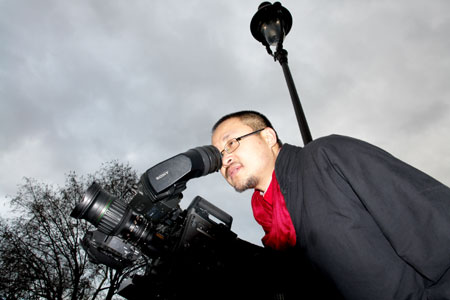
Zhou Bing's latest documentary, South of the Ocean, sheds new light on the past, present and future of Chinese emigrants' lives in Southeast Asian countries. Photos Provided to China Daily
Documentary filmmaker Zhou Bing reveals his secrets about bringing the subjects of his work closer to audiences far removed from his field of study, writes Raymond Zhou.
Zhou Bing has lots of friends in Southeast Asia. When they have a party, his friends would use multiple languages to talk to different people in the same room. "Many of them can speak seven languages and dialects, including Mandarin, Cantonese, Hakka, Fuzhou dialect, southern Fujian dialect, Malay and English. They would keep on switching from one to another and sprinkle one language with words from others," explains Zhou, a documentary filmmaker. Zhou spent much of the past three years visiting nine countries in Southeast Asia that are collectively known as "Nanyang" in Chinese. It was the destination of many Chinese emigrants in the old days. Zhou and his team embarked on a mission to chronicle the current lives of these people as well as the history of their ancestors.
The result, South of the Ocean, has been broadcast on the History Channel in the United States. That was a two-hour highlight, and the full-length 10-episode version will hit the airwaves on the documentary channel of China Central Television.
"Nanyang is a mirror, which can reflect not only China's past, but its present and future," says Zhou. "Once you mingle in that society, you'll know how our ancestors lived and their customs, including how they decorated their homes and worshipped their gods. Even traditional holidays we celebrate today are more elaborate and complicated over there."
